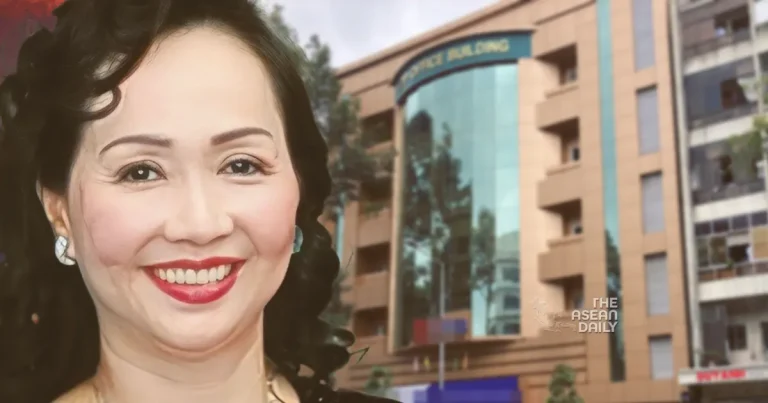4-3-2024 (HANOI) The sprawling Times Square tower in the bustling commercial centre of Vietnam’s Ho Chi Minh City has become the epicentre of a major financial scandal involving Truong My Lan, the chairwoman of Van Thinh Phat (VTP) Group, one of the country’s wealthiest real estate conglomerates. Accused of orchestrating a massive tapestry of fraud and corruption amounting to US$12 billion, Lan is now set to face trial on March 5, potentially facing a death sentence if found guilty.
The case, considered Vietnam’s largest-ever fraud, sheds light on the challenges faced by the rapidly developing economy as it grapples with issues of corruption and attempts to attract foreign investments. The Communist Party of Vietnam’s anti-corruption crackdown has led to a series of high-profile cases, impacting not only the financial sector but also causing a freeze in the nation’s bond and real estate markets.
The Supreme People’s Procuracy of Vietnam has accused Lan of embezzling over US$12 billion from Saigon Commercial Bank (SCB) between February 2018 and October 2022. Allegations include the existence of “ghost” companies, bribes to government officials, and control over an illegal bank disbursing loans worth approximately 11% of the country’s 2022 GDP. Lan’s case stands out for its audacity, implicating 24 government inspectors who are alleged to have taken bribes to cover up violations.
The scandal has triggered a domino effect, leading to a slowdown in the property and bond markets as officials, fearing police investigations, delay approving legal documents. Lan’s arrest has contributed to concerns about the government’s ability to safeguard the banking system, bond market, and overall economy, raising questions about its capacity amid a surge in wealth.
Despite Vietnam’s economic success, attracting foreign direct investment of over US$23 billion in 2023, the nation struggles to keep pace with its rapid growth. The anti-corruption campaign, part of the Communist Party’s ongoing efforts, has affected high-ranking officials and sectors across society. Lan’s case, with its scale and audacity, underscores the challenges faced by regulators overwhelmed by the country’s economic expansion.
The impact of Lan’s arrest extends beyond legal ramifications. More than 700 VTP Group units have been frozen, and 156 developments are under government control. Authorities have seized millions of dollars in assets, including cash, luxury cars, yachts, and properties, while freezing substantial amounts in bank accounts. Lan’s arrest has disrupted the property market, resulting in a liquidity crunch, missed payments, and a slowdown in corporate bond issuances.
The property market’s woes have spilled over into the broader economy, causing a decline in growth targets and impacting more than 1,200 frozen projects due to liquidity problems. Analysts suggest that policymakers may intervene to support developers and prevent potential social unrest.




